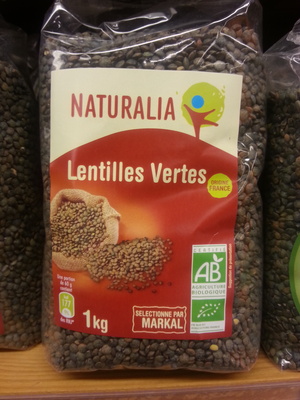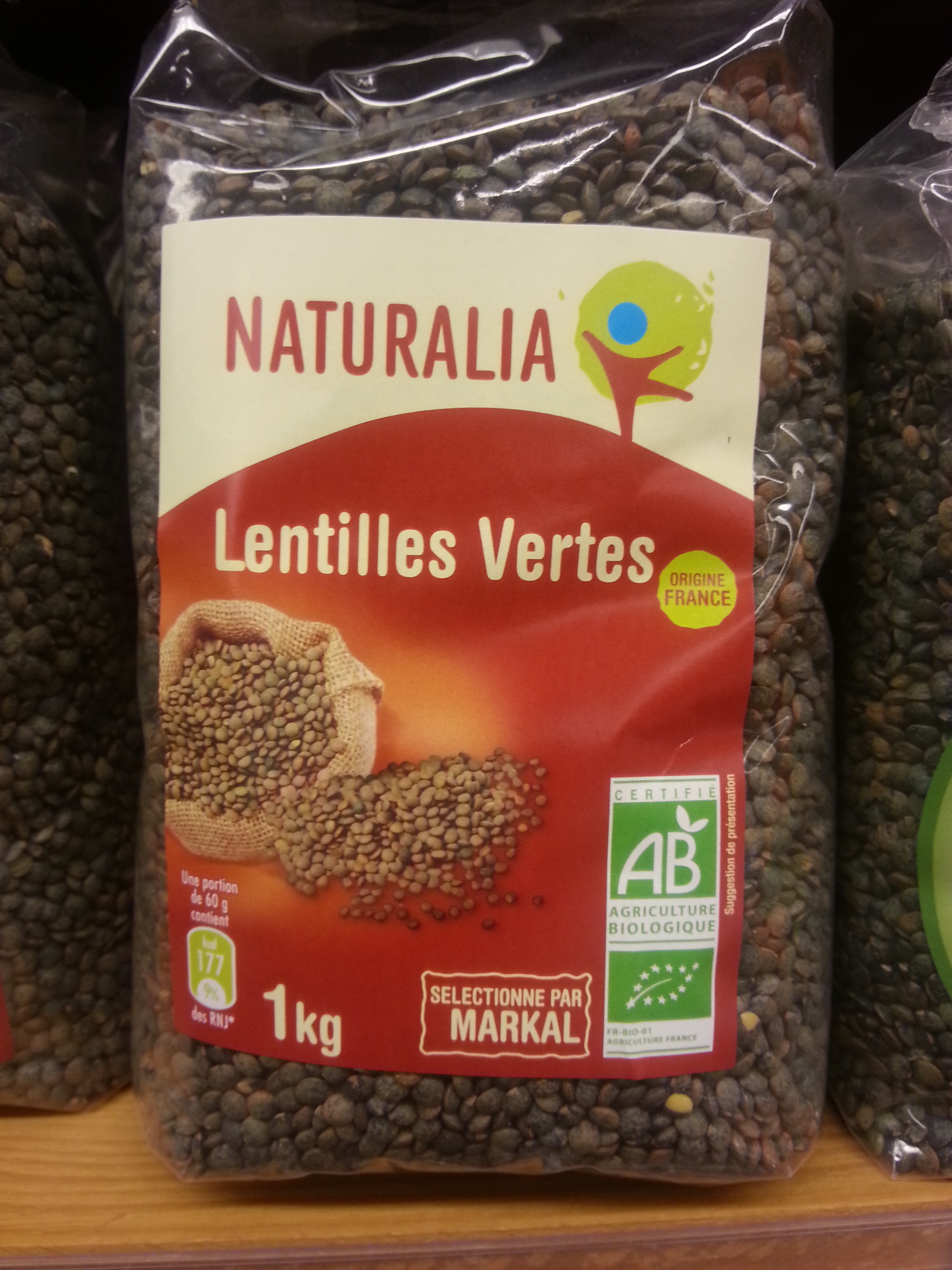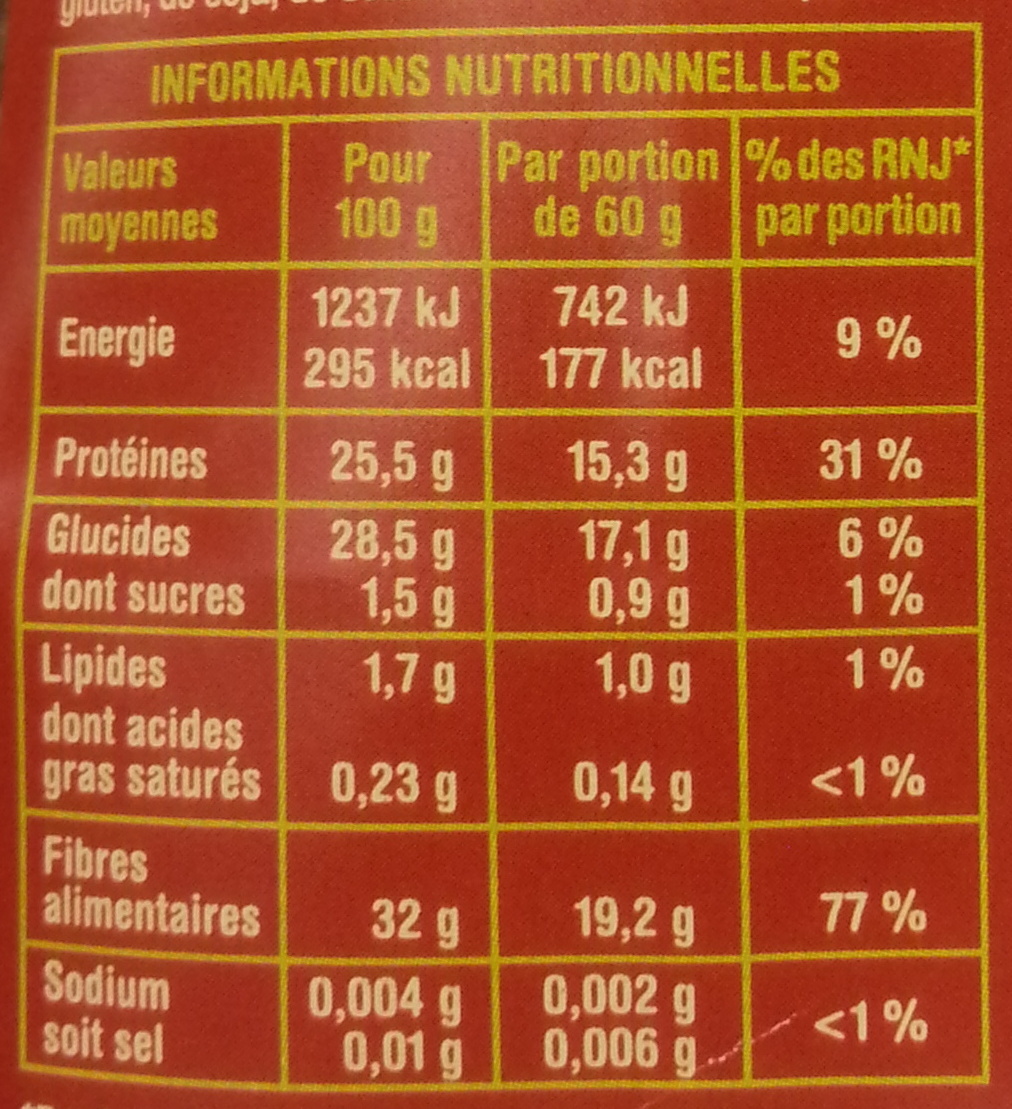Lentilles vertes - Naturalia - 1 kg
This product page is not complete. You can help to complete it by editing it and adding more data from the photos we have, or by taking more photos using the app for Android or iPhone/iPad. Thank you!
×
Barcode: 3700036900295 (EAN / EAN-13)
Common name: Lentilles sèches issues de l'agriculture biologique
Quantity: 1 kg
Packaging: Protective gas, fr:Sachet plastique
Brands: Naturalia
Categories: Plant-based foods and beverages, Plant-based foods, Fruits and vegetables based foods, Legumes and their products, Legumes, Seeds, Vegetables based foods, Legume seeds, Pulses, Lentils, Green lentils, fr:Lentilles-vertes-bio
Labels, certifications, awards:
Organic, EU Organic, FR-BIO-01, Green Dot, AB Agriculture Biologique, Agriculture France, Eco-Emballages, Sélectionné par Markal



Origin of ingredients: France, fr:Agriculture France, fr:Bourgogne, fr:Midi Pyrénées
Manufacturing or processing places: Saint-Marcel-lès-Valence, Drôme, Rhône-Alpes, France
Traceability code: EMB 26313 - Saint-Marcel-lès-Valence (Drôme, France)
Link to the product page on the official site of the producer: http://www.naturalia.fr/bio-lentilles-ve...
Stores: Naturalia
Countries where sold: France
Matching with your preferences
Environment
Carbon footprint
Packaging
Transportation
Labels
Report a problem
Data sources
Product added on by stephane
Last edit of product page on by packbot.
Product page also edited by date-limite-app, jacob80, manu1400, roboto-app, tacite-mass-editor.











